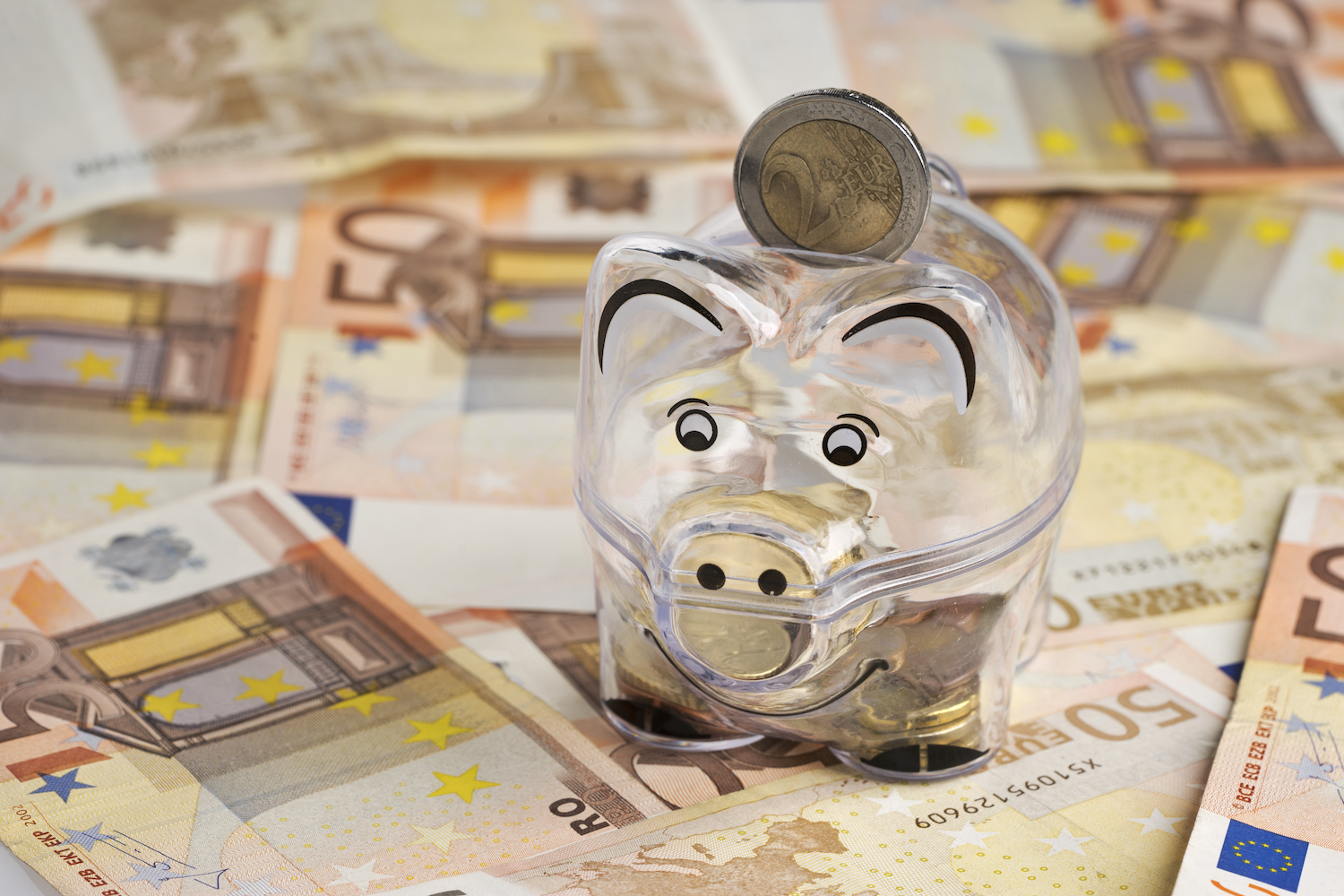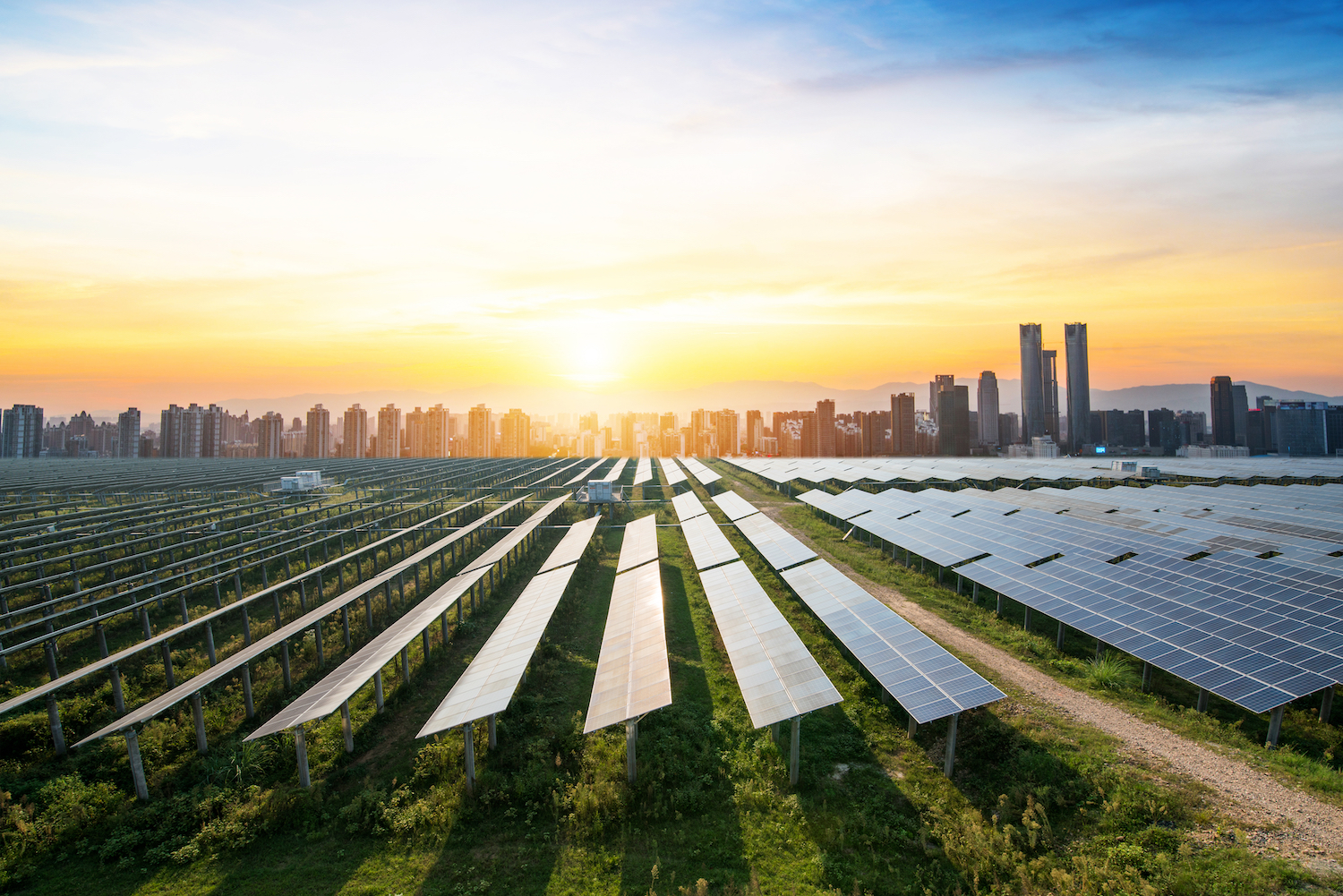Editor’s note: ImpactAlpha contributing editor Imogen Rose-Smith, a longtime senior writer for Institutional Investor, contributes a column on the policies, practices and strategies of the largest asset allocators, including pensions, foundations, and endowments. As Imogen says, she’s “tracking what investors do, not just what they say.”
Congratulations! Never have there been so many impact investors in and around the orbit of a president-elect of the United States.
Vice President JD Vance, of course, was once involved with Rise of the Rest, Steve Case’s once-prominent impact fund, and invested in once-darling AppHarvest (Case, who laid low during Vance’s rapid rise, is now touting their ties). Pershing Square’s Bill Ackman, whose foundation built an impact portfolio, came out last summer as a Trump supporter and went all in for Trump on Twitter/ X. Vivek Ramaswamy, well, he has that whole weird anti-woke ETF platform (does that make him a negative-impact investor?)
And, of course, EV pioneer Elon Musk is now First Fanboy and the one-time environmental crusader and champion of regenerative agriculture, Robert F. Kennedy Jr., is going to be…..something in the Trump administration (I for one am thrilled to have RFK Jr. in charge of me and my body, whether I like it or not).
Many of the underlying problems that propelled Trump into office are the same ones impact investors try to tackle. That’s arguably why you see so many impact investing characters in Trump’s orbit. Those problems — the cost of living, lack of affordable housing, a need for better and higher quality jobs, support for small business and enterprise — have to be tackled, with or without government funding.
So, the election result is not necessarily entirely bad news for impact. Impact investing increased under Trump. So did investment in climate tech. Coal power production dropped by a third. Trump signed important impact investing legislation, like Opportunity Zones. There is no reason to think things like that can’t or won’t happen again.
But….fuck. November 5, 2024, was a very dark day for women, for people of color, under-represented minorities, children and college students, immigrants, anyone who believes in democracy and civic institutions, the people of Ukraine, Israel, Gaza, and the Middle East and the world.
I believe it will prove disastrous for the American economy, as well. It will be bad for workers and the underprivileged. Trump will empower the rich (mostly himself) at the cost of everyone and everything. For sustainable investing more generally, the outlook is no less bleak. We can expect the phony war on “woke capitalism” to continue, hostile legislation on ESG to be passed and implemented, climate change to be denied, climate policy to be rolled back, and green financing to be punished.
We already know that the second season of Apprentice: White House Edition is going to be worse than the first. Surrounded by sycophants and yes-men (and women), Trump will have little to no reason to keep his most base and worst instincts in check. He has already said he will be a dictator, at least on “Day One.” With a compliant Congress and Supreme Court, and the knowledge that there is almost nothing he can’t do (34 felonies, anyone?), Trump II is going to be terrible.
There is next to nothing positive to be said about a second Trump administration. The fact that America, knowing everything that we know about Donald Trump, took a look at the man and decided to re-up is appalling.
This time it’s personal
The day after the election, the FT’s Moral Money newsletter went with the headline, “Biden’s climate legacy in focus as US prepares for Trump’s return.” The FT’s Patrick Temple-West and Simon Mundy tried to reassure their readers that while Trump has promised a scorched earth attitude toward climate policy, some of that would prove hard to get done. Repealing the climate provisions in Biden’s Inflation Reduction Act, for example, might prove politically unpalatable, since so many of the jobs being created by the IRA are in red states.
That may sway local representatives, but Donald Trump doesn’t care. His No. 1 interest (outside of lining his own pockets) is erasing the successes of Democratic presidents Biden and Obama.
Trump has shown us who he is. Believe him.
Trump has made clear his intention to be hostile toward climate action, and to support the domestic oil and gas industry. (Never mind that under the Biden administration the U.S. was at its highest production level ever for oil and gas and a net energy exporter.) He will take the U.S. out of the Paris climate agreement, a dramatic setback for global efforts to halt climate change.
We can also expect an escalation in the assault on so-called ESG investing. Shortly before the end of the Trump administration the Department of Labor, then headed up by nepo baby Eugene Scalia, implemented a restrictive policy that was designed to have a “chilling effect” on the ability of ERISA pension fiduciaries to use ESG factors in investment decision making. This policy was reversed by the Biden Administration.
Since taking control of the US House of Representatives in 2022, the House GOP majority has had a good old time holding hearings against ESG and railing about “woke capitalism.” A resolution by Congress to overturn the ruling by Biden’s Labor department regarding ERISA fiduciaries and ESG represented the first veto of Biden’s term.
Post-election, Bloomberg has declared ESG dead.
Diversity, equity and inclusion programs will almost certainly come under fire. The Supreme Court decision tossing out affirmative action in university admissions set the stage for litigation against the Fearless Fund’s grant program for businesses run by Black women.
Now Bill Ackman, who has been on a rant against DEI for well over a year now, and the Wall Street-backed think tank the Manhattan Institute, will have the ear of Vance, Stephen Miller and others in Trump’s universe, putting a target on the back of DEI efforts everywhere.
Only the best people.
Conversations in cars
While things are going to be pretty bad for the next two to four years, at least (the damage Trump brings will likely take decades to undo), there are some hopeful signs for impact investing. Impact capital under management actually grew significantly during the Trump years, and we can expect foundations, high-net-worth individuals and other parts of the impact community to step up as they have before.
More importantly, the very societal needs and anxieties that caused a lot of people to vote for Trump and the types of issues that impact investors are seeking to address.
Earlier this year, I ended up taking for one reason or another a series of long, one-hour or more, Uber rides. More often than not the driver was chatty. Friends and family laugh at me, but if I get a talkative driver (and for any Uber drivers reading this, my preferred conversation is no conversation) I’ll try to feel out their views on politics. I never flat out ask who someone is voting for, but you can usually get them talking about key issues in the news. This is what cab drivers the world over are famous for.
In June, I had a driver, a Black guy, probably in his 50s. He’d been shot, in prison, and had his first kid, all before the age of 21. He had some pretty good points to make about how private equity ownership of prisons was resulting in the reduction of much-needed services to inmates.
And I am certain he voted for Trump. He was convinced that Democrats were encouraging immigrants so they could “replace” Black voters. (He also thought the Civil Rights Act was the worst thing that had happened to Black America.)
Another driver railed against sending money to Ukraine when it could be spent here at home. He didn’t know that most of that money is being used to buy U.S. weapons, often weapons manufactured in red states. He was stating a very strongly felt economic concern: That the government wasn’t doing enough to look out for regular working people here in America.
One driver, a sweet young white guy probably in his early 20s, was silent for almost the entire ride (yay!) But spent the trip head banging to something that I can best describe as incel rock (boo!). Possibly the longest car ride of my life. And the Tesla driver who had bought his car only a few days earlier, worked nights as a security guard and figured he could pay for his shiny new EV (the seats were blindingly white) by picking up Uber gigs.
And the 20-something-year-old guy, almost certainly high on adderall, trying to make his fortune as a day trader. Having previously trained and worked as a long distance truck driver, he had moved from the Bronx into his parents basement in Riverhead, Long Island, to save on rent.
Those car trips made me very concerned for Biden’s re-election prospects.
Later, I got caught up in the euphoria of the Harris campaign, and the idea that women were going to save us.
I should have remembered my Uber drivers. What they were expressing in one way or another was a deep seated economic anxiety, one that they felt government was failing to address. It is the same anti-establishment wave that has toppled almost every government that navigated through COVID in this unprecedented global election year. For the first time since at least 1905, every incumbent party seeking reelection in the developed world this year lost voter share, according to this chart from the FT.
So, yes, Democrats had bad messaging. Yes, too many of them are Ivy League elitists unattached from the real world. And they are condescending toward the very people they expect to vote for them. Yada, yada, etc., etc. The real issue is that we, as a society, have massive social problems and inequalities. Trump won because he promised to do… something.
Trump is not going to be able to fix these problems, and that will be his undoing. He and the GOP congress are at least going to have to take a stab at… something. And that could result in opportunities for impact investors.
Affordable housing, access to capital for entrepreneurs, affordable child care – all are things that impact investors care about.
The Opportunity Zone legislation, for all its massive problems arguably the most important piece of impact policy ever, passed under Trump. And with Republican senator and Trump ally Tim Scott almost certain to take over the Senate Banking Committee, OZ 2.0 looks quite likely. Plenty of Republicans are impact investors too.
Hail to the toddler-in-chief
In retrospect, Jeff Bezos did the right thing by not allowing the Washington Post, the publication he owns, to make a presidential endorsement.
Don’t @ me.
At least it was the right thing for Bezos and for Amazon, the company he founded and on which he made his $230 billion fortune. As executive chairman, Bezos, who owns around 9% of Amazon stock, arguably had a fiduciary duty to shareholders to do what he did.
Trump has made clear he will punish those who stand against him, and reward those who stand with him. Democrats, meanwhile, will do nothing. So the safe bet for a powerful CEO was to endorse Trump, or at least say nothing. (Witness Jamie Dimon’s painful dance, which culminated with his wife doorstopping for Harris-Walz in the final days of the campaign, while the CEO of JPMorgan maintained his uncomfortable silence about who he would cast his vote for.)
Trump likes it when people suck up to him. Which is why so many CEOs, especially in the tech space – Apple’s Tim Cook, Meta’s Mark Zuckerberg, Alphabet’s Sundar Pichai, Amazon’s Andy Jassey among others – have been making nice to Trump for months now. They know that the toddler-in-chief can be wooed by flattery and charm, and conversely can lash out at people he thinks are against him. And with real business risks – antitrust litigation being but one big one – making nice to Trump is not just prudent, it’s necessity.
Amazon and Bezos spent the last Trump administration being threatened and bullied by Trump as a result of coverage in the Washington Post. Amazon alleges it lost a lucrative $10 billion cloud-computing contract because of Trump’s personal vendetta. Bezos, who like Musk has a space business that could also benefit from government contracts, claimed in an op-ed that he blocked the endorsement not out of personal self interest; clearly it was in Amazon’s best interest.
Then, of course, there is Elon Musk. Oh, Elon. Just like Bitcoin, shares in Tesla skyrocketed on the news that Trump had won. Things are…complicated. While Musk will almost certainly benefit from his growing bromance with Trump, it is unclear what Trump’s policies will mean for Tesla. In the critical state of Michigan, home of the U.S. auto industry and 15 electoral votes, Trump had some nasty things to say about the EV industry, and has promised to spur gas-powered auto manufacturing.
That could, or should, be bad news for Tesla. But Tesla’s share price has never traded on fundamentals, and Musk is so rich he can buy a social media company for $44 billion and practically destroy it. Musk’s Space X business could certainly benefit from government contracts under Trump. Who knows what other personal agendas Musk might pursue.
You can, of course, make a Shareholder Commons argument that what is good for one individual company will be bad long term if it doesn’t support our collective good. Try telling that to the CEO’s of Apple, Alphabet, Amazon, Meta or countless other companies right now.
Even as these titans of business line up to flatter Trump, climate change is here. Global climate regulations are still in place. Companies that operate in a global market need to take action on climate. That, in turn, will encourage investment and enterprise. Being good to the planet is increasingly good for business.
We all live in Miami now
So sure, the Paris Agreement is dead. ESG is done. But maybe things won’t be all bad.
The stock market is up five million percent on the news of Trump’s election. The Bitcoin bros are so pumped I can smell their testosterone from here. Interest rates are on the way down, and the economy is all go-baby-go.
Trump wants to keep the economy juiced. And, if he manages to control himself and not raise tariffs on everything, maybe it stays that way. That would be good news for stock market investors, and good news for the venture capital industry, including impact- and climate-related venture, as it would provide a pathway to exits. I could even see SPACS coming back, since what killed that market was really Biden era policy which required, oh, a viable business plan for companies, like Truth Social, seeking to go public through that back door. Adam Neumann has already made a reappearance in, of course, Miami.
For a long time now, since 2020 at least, a certain center of gravitational power has shifted toward Florida. This was Trump’s idea of government in exile, hanging out at Mar-a-Lago, playing golf, and holding meaningless press conferences. It was Jared Kushner and Ivanka Trump, shunned by New York society, trying to present some kind of dignified front, surrounded by the carnival characters from the state’s GOP Congressional delegation (looking at you, Matt Gaetz.) And, of course, Gov. Ron DeSantis, who was never quite able to out-Trump Trump
The pull was about something more than just politics though. It was about money and power (as is politics). It was about the hedge fund managers who flocked to the Miami area in the last few years for the favorable tax breaks, not least among them Citadel and its Sith Lord CEO Ken Griffin, who relocated his firm from Chicago. It used to be that the important cities were New York, LA, Chicago, and Washington D.C. (sorry Boston.) But now, somehow, it’s Miami, with its low or no taxes, favorable views on bitcoin, creepy alligators and climate denialism.
I expect that Miami and Palm Beach will continue to play a starring role. Does anyone really see Trump moving back to the White House full time? (Melania may show up to decorate the odd Christmas tree or wreck another rose garden, but she’s not going to serve four more years in the White House).
And if Trump has his way, the whole country will become more-or-less like the Florida Gold Coast. Good for rich people, bad for the poor, light on regulation, awash in crypto, water temperatures of 90 degrees, extreme weather events that could not possibly be caused by climate change, and none of that nasty ESG investing. One can look to the policies in Florida and Texas to see just how Trump 2.0 might play out.
Other states are going to push back. California Gov. Gavin Newsom, never one to let a good crisis go to waste, has already called a special legislative session to “Trump proof” his state. California and other blue states, including New York, Massachusetts and Illinois, will lean into climate change and continue investing in clean energy. Even Texas will continue to diversify its grid with solar and storage. The green economy is far from dead, it’s just different.
Then again, since Trump has practically no political ideology or principles – apart from hating unions and immigrants, doing whatever Russian leader Vladimir Putin wants and loving himself some big beautiful tariffs – Democrats could possibly get some things they wanted if they could just swallow their disgust at Trump and suck up to him. All they need is a few deep pocketed billionaires willing to fly to Mar-a-Lago and kiss the ring.
It’s going to be hard to stop the criming though. Except as it’s no longer a crime if the President of the United States does it. Because our Supreme Court is rigged with a bunch of justices passionate in their pursuit of an extreme right wing agenda, and in the tank for Trump.
Like I said, fuck.
Pottery Barn rules
The day after the election I was, though devastated, also strangely elated. I feel like we’ve been trying to hold the wolves of crazy back from the door with a whip and a chair for at least six years. Now the fight is over. We lost. It’s almost a relief.
Now, the GOP is under Pottery Barn rules – if they break it, they own it. They are the ones in charge of all branches of the federal government. They campaigned on unrealistic promises – and they are the ones to deal with the consequences. Just see what happens to the cost of living when Trump sends the economy off the cliff with 100% tariffs on Mexico. Or what kicking out all the migrant workers does to food prices and the supply chain.
It is one thing to “vote no and hope yes,” which has been the House GOP’s operating principle for years, including many votes against the IRA or the CHIPS act, for example. Or, worse, “vote yes, hope no,” such as with the repeal of the Affordable Care Act. Now it’s going to be “vote yes, get yes,” unless some people with principles step up and try to make a difference. Not likely: the GOP has learned that going against Trump is political suicide.
No way to run a country. And yet, here we are. Women are already dying in states unable to provide them with emergency medical care because of draconian abortion laws passed after the Supreme Court overturned Roe v. Wade. Trump has promised to clamp down on press freedoms and prosecute his political enemies.
So, yes I’m terrified. I’m terrified for immigrants and for the 12 million undocumented workers living in the U.S. I’m terrified for the people of Ukraine and Gaza. I’m terrified for the rule of law and our civic institutions. And I’m sad for what it says about us as a country and a people that we couldn’t promise each other more.
At worst, I worry that we are headed toward a new form of apartheid South Africa (hello, Elon). At best, we’re in for the kind of political nihilism, economic anarchy, and have-and-have-not society, that has characterized Italy for decades.
Despite all the evidence, I do tend to believe that the arc of history is long, and that it bends toward justice. An unfettered Trump is going to be bad. But there will come a time when this is over.
We have an important role to play in making sure that the values we believe in prevail. As Jon Stewart says, “We’re all going to have to wake up tomorrow morning and work like hell to move the world to the place that we’d prefer it to be.”
And hey, The Cure has a new album out, their first in 16-years. If not a reason to be cheerful, it at least provides us with some mood music as democracy burns. Thanks, Robert Smith.
So, welcome to the Rebel Alliance. The resistance starts now.
Imogen Rose-Smith is a contributing editor at ImpactAlpha. A longtime senior writer for Institutional Investor, she was most recently a fellow in the Office of the Chief Investment Officer of the University of California.












